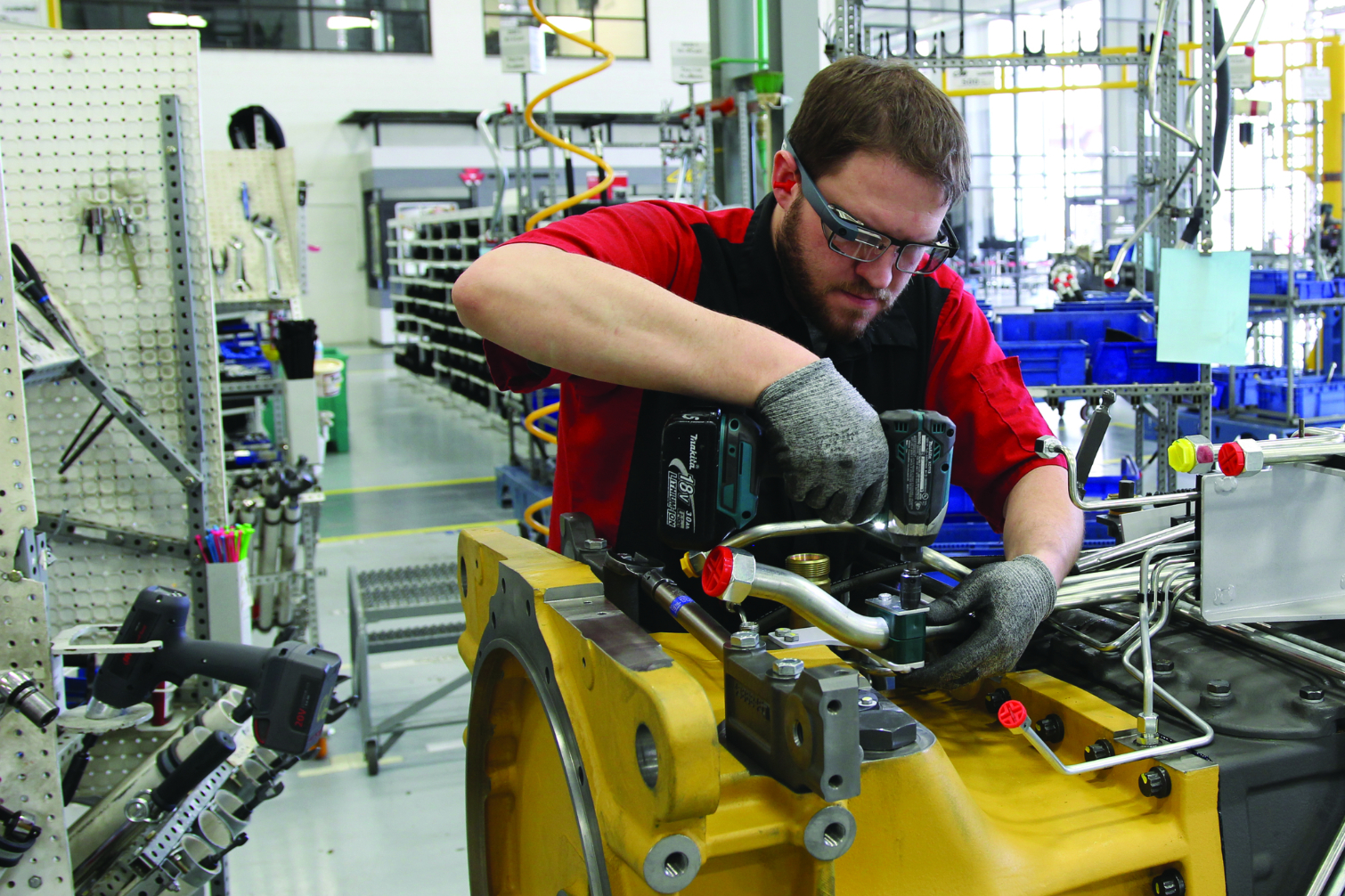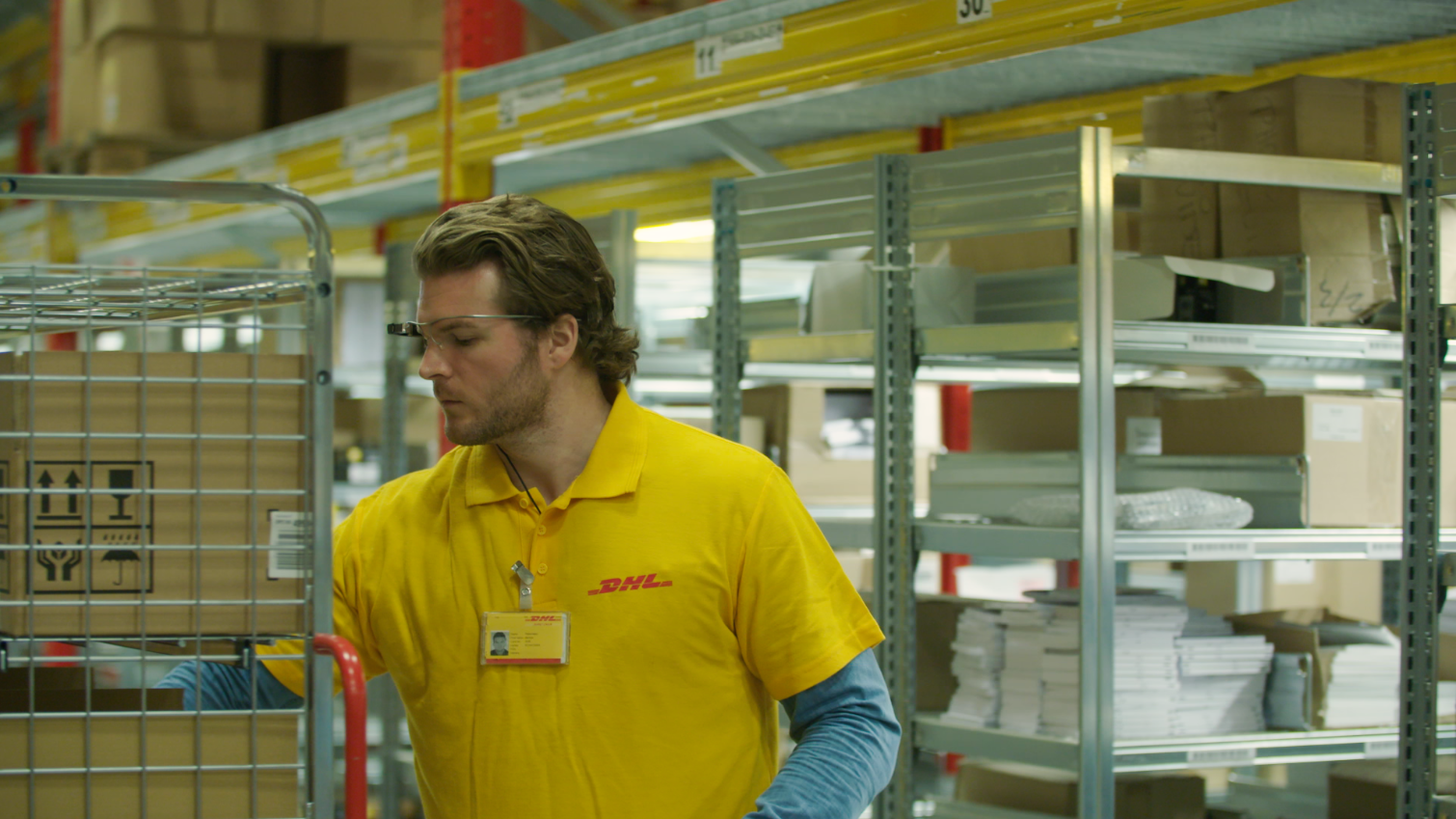Google Glass Resurfaces As Industrial-Grade 'Glass Enterprise Edition'
After two years in hiding, the Google Glass Program resurfaced as Glass Enterprise Edition. Industrial and enterprise customers can now apply for access to Glass hardware and custom software packages to suit the needs of their businesses.
It's exciting to talk about immersive technology through the lens of entertainment, but it can also be a productivity tool--and in fact, industrial and other business applications are where the technology is gaming quite a bit of momentum. Industrial customers are especially interested in AR technology because it can help free the hands of workers while simultaneously delivering detailed instructions, which can boost productivity and improve the worker safety.
ODG is a player in enterprise-level wearables, but Alphabet (Google and X's parent company) wants a piece of action, and it put the folks at X in control of making that happen with the Glass Enterprise Edition, which is available now.
The new version of Glass features design changes over the original that reduce the weight and improve the comfort of the device, and it includes a larger battery so you can use it for longer. X said the new version of Glass also features a more powerful processor, but the company declined to comment about the component specifications.
As you may recall, a little more than five years ago, Google's executives started wearing the Google Glass Explorer Edition in public. In the following three years, Glass went from the Next Big Thing to a device that the public despised. Early Glass adopters, dubbed “Explorers,” (or "Glassholes" by detractors) were the subject of public backlash stemmed from privacy (and piracy) concerns about Glass’s video and audio recording capability. In January 2015, Google stopped selling the Glass Explorer Edition (for the second time), but the idea never completely went away. And now it's been reborn for industrial use cases.
During the two-year long Glass Explorer program, Google discovered that enterprise customers were taking advantage of Glass to help improve worker efficiency, reduce instances of human error, and help increase safety in industrial environments. The general public may not have accepted Google Glass, but the enterprise segment embraced the device with open arms.
For the last two years, Alphabet’s X company has worked with more than 30 partners to build a collection of applications and conceive of specialized business use cases for Glass. X ran a selective pilot program that allowed more than 50 businesses from a range of industries, including manufacturing, logistics, and healthcare, to experiment with Glass and determine how the device can help them improve worker safety and efficiency. Now, X is ready to expand the program to a wider range of customers.
Get Tom's Hardware's best news and in-depth reviews, straight to your inbox.
The Glass enterprise pilot program proved the value of the Glass concept. The companies that took part in the pilot reported significant improvements in worker effectiveness. AGCO, an agricultural machinery manufacturer, said that it saw a 25% improvement in production time and a 30% improvement in inspection time after it rolled out Glass hardware to its assembly line workers. DHL also reported significant efficiency improvements after it equipped order pickers with Glass hardware to give them visual instruction about which cart to place packages in. DHL estimated that Glass improved order picker efficiency by as much as 15%.
Glass is also improving the lives of healthcare professionals—specifically doctors. Dignity Health equipped its doctors with Glass headsets to help improve patient care. The company said its doctors used to spend up to 33% of their day writing notes, but with Glass, they can simply record conversations and let software transcribe them. The doctors at Dignity Health now spend less than 10% of their day taking notes, and twice as much time in direct contact with patients.



X didn’t reveal the price of the Glass Enterprise Edition. Companies that are interested in using Glass must contact Glass Partners to build out a custom solution for their specific use case. X said the cost varies based on the level of software customization and training that each customer requires.
Kevin Carbotte is a contributing writer for Tom's Hardware who primarily covers VR and AR hardware. He has been writing for us for more than four years.
-
shrapnel_indie Perhaps if Glass was a little cheaper and/or offered more to a regular consumer (non-enterprise) it would have seen greater acceptance.Reply
Placing enterprise on the same field as consumers, the security and piracy concerns are still the same. There is no real change there. Hardware improvements should always happen. So the only noteworthy change is the focus or target for its use. -
bloodroses Reply19957625 said:Perhaps if Glass was a little cheaper and/or offered more to a regular consumer (non-enterprise) it would have seen greater acceptance.
Placing enterprise on the same field as consumers, the security and piracy concerns are still the same. There is no real change there. Hardware improvements should always happen. So the only noteworthy change is the focus or target for its use.
The problem with the regular consumer market though is the issues they talked about above; lack of privacy and 'glassholes' believing they should be able to do what they want. The original google glass gave no indication to people around them when the camera was used for pictures or video. This allowed personal information (credit card numbers, cam-ripping movies, etc) to be easily gotten.
http://the-gadgeteer.com/2014/01/20/amc-movie-theater-calls-fbi-to-arrest-a-google-glass-user/
Also, it gave users even more of an excuse to not pay attention while driving:
https://www.wired.com/2013/10/google-glass-ticket/
If you look into other articles about this, she claimed she was using google glass to pay attention to her speed; but was actually doing 15mph over while face booking; which was later stated after the court hearing. The ticket was dismissed only because they couldn't prove without a doubt that the device was on.
In industrial level usage, these issues can be controlled. -
Blatantruth It would be perfect for people in space. They could have a team of people here on the ground monitoring their view and highlighting important next steps or putting messages up on the screen for the worker. Having two or more pairs of eyes on a task can help make thing go quicker and with less errors.Reply -
waynes When I wantef to do an glasses product, these are the sorts of targets I was looking at. But, as an potential enterprise customer, I am completely unhappy with any thing that monitors transmitting the data outside the company borders. In other words, many Google products. I'm very apposed. I am also very interested in worker and customer privacy, such is ethical investment. If people in businesdedike this want to claim they are helping the world ethically, let the stop the monitoring. There is a minimum of monitoring needed and a maximum.Reply